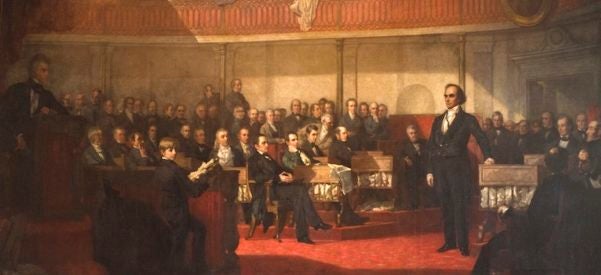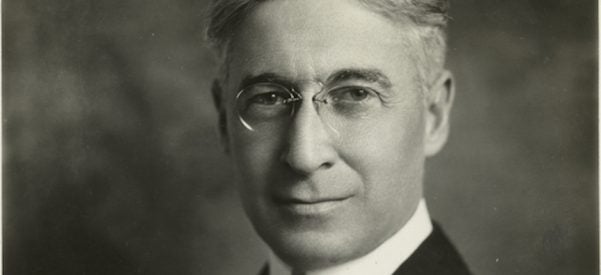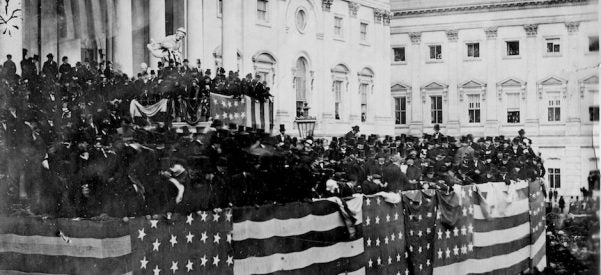Explore
: AMERICAN GOVERNMENT
New England Statesman Daniel Webster Found Religion in Centralized National Power When it Served His Region’s Interests
by Christopher Childers
April 18, 2019
For generations, school children memorized the ending to Daniel Webster’s “Second Reply to Hayne,” delivered during the famous Webster-Hayne debate of January 1830. This most-famous-of-debates began in a modest fashion, with an argument over westward expansion and morphed into a discussion of tariffs and then nationalism versus states’ rights. Over time, the discussion came to symbolize something much more about American unity, as Webster’s soaring defense of nationalism and American nationhood, crowned with the words “Liberty and Union, now and …
Read More >
The Practice of Tapping the Moneyed Elite Began with WWI—and Was Surprisingly Scandal-Free
By Charles Rappleye
February 10, 2017
From our earliest days we Americans have embraced leaders from among the ranks of the nation’s moneyed elite. Voters set the tone when they chose George Washington, the wealthiest man on the continent at the time, as the first president.
But that choice was accompanied by a healthy skepticism of the role of money in the halls of government. As the years went by, recurrent scandals prompted rounds of reform, fostering an intricate system of rules to promote ethical conduct.
The result …
Read More >
There Has Never Been Anything Like It Before or Since
By John Copeland Nagle
October 10, 2016
We are told that this year’s presidential election is unprecedented in many ways. The American voters are faced with the choice between an unlikely candidate who has been repudiated by many within his own party, and a seasoned politician whom the head of the FBI characterized as “extremely careless.” The tumultuousness of the race makes many long for the good old days when elections were civil, thoughtful, and quickly resolved
In other words, we are not longing for 1876.
A …
Read More >




